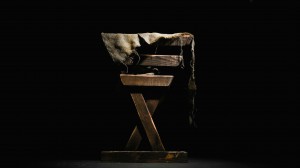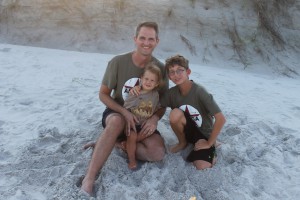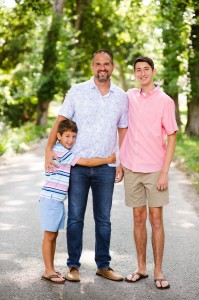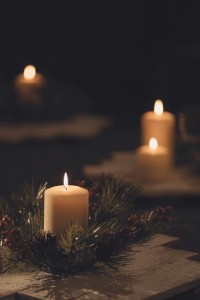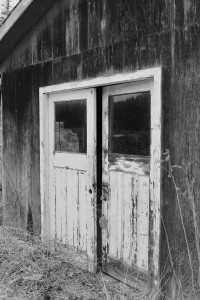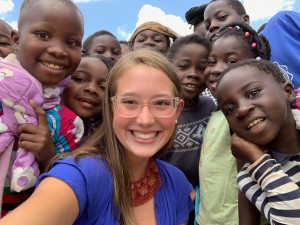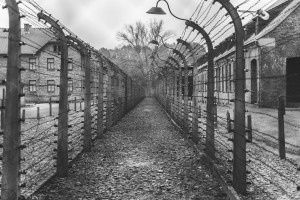For just a moment, let’s think about Joseph the Dreamer.
We find his story in the book of Genesis. Anyone who grew up going to church will be quite up to speed with this story. I can still see the flannel graph pictures of Joseph surrounded by bales of wheat bowing in his direction during those early morning Sunday school lessons. It is a story most of us have heard many times. But for those of you reading this who are not familiar with Joseph’s story, I want to quickly give you a recap of his life.
Joseph’s story is found in the book of Genesis, chapters 35-50.
He was the firstborn son of Rachel and Jacob (Jacob, who was later renamed Israel after wrestling with God). Joseph had ten older brothers. These were the sons of Leah (Rachel’s sister), Bilhah (Rachel’s maidservant), and Zilpah (Leah’s maidservant).
Israel, his father, loved Joseph more than any of his brothers. This created jealousy and spite toward Joseph. It did not help matters when Joseph had a dream where all of their sheaves of grain bowed down to his. And again, another dream which he shared with great enthusiasm, where the sun, moon, and eleven stars all bowed down to him.
Infuriated by Joseph’s audacity to imply that they would bow down to him, and even further provoked by their father’s preference for him, the brothers devised a plan to get rid of Joseph forever.
Initially, they intended to kill him, but Reuben—the oldest of all the brothers—convinced the others to throw Joseph into a cistern. (He planned to return later and help Joseph escape.) The brothers agreed to this new plan, and when Joseph arrived, they stripped him of his beautiful robe—a treasured gift from Jacob, and a sign of his favoritism—and tossed The Dreamer into the cistern.
A caravan of Ishmaelites was passing by. Seeing this caravan, Judah (one of the brothers) had the bright idea of selling Joseph into slavery as opposed to killing him, which would leave his blood on their hands. The brothers agreed, and they sold Joseph for twenty shekels of silver.
Realizing that their father would be expecting Joseph to return home at some point, the brothers slaughtered a goat, ripped Joseph’s robe apart, and then dipped the pieces into the goat’s blood. They presented the bloodied robe to their father. Jacob was grief-stricken and tore his clothes. He mourned over the loss of Joseph for many days.
The caravan of Ishmaelites made their way to Egypt, where they sold Joseph to Potiphar, one of Pharaoh’s officials. Joseph worked hard and with great integrity, gaining much favor in the sight of Potiphar. Because of his strong character, much was entrusted to Joseph.
Potiphar’s wife took a liking to Joseph, and she tried to seduce him. She was not a woman who took no for an answer, and she repeatedly invited him into bed with her. Each time Joseph declined. One day, when Joseph and Potiphar’s wife were alone in the house, she grabbed his cloak and pulled it off. Joseph ran away. Potiphar’s wife was humiliated and resented Joseph. She retaliated by accusing him of trying to take advantage of her. Enraged with anger, Potiphar threw Joseph into prison.
I want to pause here.
Joseph, throughout this entire exchange, remained upright and honest. He held on to his character and integrity, and he worked diligently to honor his master. Joseph’s crime against his brothers was simply his own immaturity, and yet he was hated and sold into a life of slavery. Joseph maintained his integrity amidst the ongoing seductions of his master’s wife.
His dreams were shattered, and his good behavior landed him in prison. I wonder if he felt an ounce of confusion or worry, or depression?
How could a person do everything right and still end up in a dungeon?
Have you ever asked the same question regarding your own life? God, how did I end up here after doing everything the right way—the way you asked of me? How?
Back to Joseph’s story…
It did not take long before Joseph won the heart and favor of the prison warden. Once again, Joseph proved himself to be trustworthy and reliable. Genesis, chapter 39, verse 23 says, “The Lord was with Joseph and gave him success in whatever he did.”
There came a moment of significant hope for Joseph. The king’s cupbearer and baker were both thrown into prison. During that time, each of these men had a dream. They were perplexed as no one could interpret their dreams. When Joseph approached them, he asked them to share their dreams with him, and they did. God gave Joseph the interpretation of these dreams. The baker would be executed, and the cupbearer would return to his position. To the cupbearer, Joseph made one request: that the cupbearer would mention him to Pharaoh and get him out of prison.
Everything that Joseph said to these men proved true, but when the cupbearer returned to his duties, he completely forgot about Joseph.
Two years went by.
Let’s pause again lest we rush through the weightiness of this part of the story.
The cupbearer, who promised to speak on Joseph’s behalf once released from prison, completely forgot about Joseph. Can you picture Joseph sitting in prison waiting for rescue, for reprieve, for freedom? And then waiting for two years? Disheartening. Devastating. Crushing and heartbreaking. These are the words that come to mind when I picture this scene. And yet, what we know is that Joseph continued to live uprightly and with honor.
Two years later, Pharaoh had two disturbing dreams. He called for all the magicians and wise men to come and interpret his dreams. They were unable to do so. It was at this time that the cupbearer remembered Joseph (good for you, cupbearer!), and he told Pharaoh about the prisoner who had interpreted his dream.
Pharaoh called for Joseph. He told him his dreams, and once again, God gave Joseph the interpretation. The news was not favorable. Seven years of abundance would be followed by a seven-year famine that would ravage the land. Pharaoh found himself in need of a wise and discerning man to prepare Egypt for this severe famine to come. Joseph laid out a plan that would prepare Egypt for this great crisis. God’s favor was upon Joseph, and Pharaoh put him in charge of everything. Pharaoh placed his signet ring upon Joseph’s finger and made it clear that nothing could be done without Joseph’s command.
The seven years of abundance came and went. And then the famine set in. The famine spread throughout the world, and people—far and wide—journeyed to Egypt to buy food.
Joseph’s family, still living in Canaan, was one of those many families who traveled to find food.
Joseph was now the governor of Egypt, and he was the one who sold grain to the people who came in search of food. When his brothers arrived, they bowed before Joseph.
This is where the story really kicks into gear. There has been a lot of waiting, of hoping, of wondering about long-lost dreams and deferred hope. And suddenly, in walked Joseph’s brothers.
Joseph, somewhere around twenty years before this moment, had a dream. In this dream, his brothers bowed down to him. He was despised, sold into slavery, and presumed dead because of the jealous rage his brothers had for him. For twenty years, it appeared that this dream had died—that somehow Joseph had misinterpreted the meaning of the bowing sheaves of grain, and the bowing sun, moon, and stars.
The dream was dead.
And yet, here—twenty years later—Joseph stood with his brothers bowing at his feet.
What is incredibly precious about this moment, and cannot be overlooked, is Joseph’s response to his brothers.
He didn’t gloat over their circumstances.
He didn’t smear their hateful behavior in their faces.
He didn’t punish them by withholding food from them and their families.
Rather, through the course of this story, Joseph embraced his brothers. After twenty years, he saw his dreams from a different perspective. Yes, his brothers—and eventually his father—did bow down to him, but not for his own selfish gain or pride.
Joseph’s dreams at the age of seventeen were a partial view of the grander story God was writing upon the life of Joseph. They were true, but they didn’t hold the weight of the responsibility and pain that Joseph would experience to get to that point. Joseph’s recognition of God’s sovereignty and goodness throughout this entire story is most evident in his response to his brothers when he revealed his true identity to them.
“I am your brother Joseph, the one you sold into Egypt! And now, do not be distressed and do not be angry with yourselves for selling me here, because it was to save lives that God sent me ahead of you. For two years now there has been famine in the land, and for the next five years there will not be plowing and reaping. But God sent me ahead of you to preserve for you a remnant on earth and to save your lives by a great deliverance.
So then, it was not you who sent me here, but God” (Genesis 45:4-8).
Joseph’s dreams were not completely rewritten, but they went through a refining, a reshaping, and a reframing. Joseph’s response to his brothers reveals the work that God was doing in his life throughout the loss, the suffering, the loneliness, and being forgotten.
God was refining Joseph. He was removing the impurities and unwanted elements from Joseph’s heart. He was sifting Joseph.
God was reshaping the dream. Rather than the dream being about Joseph, God was reshaping it into a form that exalted and glorified God.
God was reframing the story. For twenty years, God used every experience, every hardship, and every moment of Joseph’s life to reframe the purpose of the dream. He filled in the gaps and created a solid structure for the dream to be realized.
And from this refining, reshaping, and reframing, we hear the resurrected hope, joy, and praise in Joseph’s voice. “God sent me here.” This was Joseph’s declaration of God’s hand upon his life, and the purpose of the dream God put in his heart.
***
Two years ago, nestled in the safety and comfort of my counselor’s office, she (my counselor) instructed me to close my eyes. I obeyed. For the following thirty minutes, she quietly walked me through a step-by-step exercise that pinpointed the deeper emotions I was wrestling with. I faced the disappointments, fears, insecurities, and pain that I had been working on throughout our sessions together, but this time with the objective of working my way up from them.
During this exercise, with my eyes closed in the quiet of the office, a picture came to my mind.
I was in a small wooden fishing boat floating out in the middle of the ocean. It was dark. The color of the sky, a midnight blue. Off in the distance, there were dark shadows of mountains or hills. I couldn’t see them clearly, but I knew they were there. The water around me was dark—a rippled blackness. I was standing at the helm of this small wooden boat, the wind blowing in my face, causing a chill through my body. I was weary. I couldn’t see where I was going, and I felt the weight of disappointment as I had no idea what to do next. Without any backstory as to how I ended up in this boat, I seemed to know—intuitively—that this boat represented my life.
Slowly, I turned away from the helm of the boat and lowered my body down to take a break. From the corner of my eye, I could see movement at the other end of the small vessel. While I could not make out the face of this person, I knew it was Jesus. As I was lying down, He was making His way to the front of the boat. It rocked side-to-side as my head rested on the bottom. He laid a hand on my arm as if to say, “It is okay, Amy. You can rest now. I will take care of everything.” He then stood at the helm and began to direct the boat.
Opening my eyes after seeing this picture so vividly in my mind, the profound message that I sensed in my heart was this: while my life was moving in a direction that I couldn’t understand, and dreams that I had dreamed for so long were lost in the misty fog of a nighttime sea, Jesus was still in control.
The reality hit me that God will never let our boats sink or float off into oblivion. He has a purpose for each one of us, and His desire is to use us—our gifts, our abilities, and our experiences—to bring glory to His name. He will not waste anyone or anything. My boat was in safe hands. If Jesus was at the helm, then I knew my boat was headed somewhere. I may not know exactly where, but He would carry it to a place that would bring me the greatest satisfaction.
I prayed a prayer in that moment, “God, give me a new dream. Plant new desires in my heart. Show me a new way.”
Some dreams die, and it is a permanent death.
Some dreams die in order to be resurrected.
And some dreams die so that God can breathe new life, new hope, and new purposes into them.
When we returned to South Africa in January 2024, I asked Emma Fogleman, the daughter of our colleagues, if she would be willing to create a painting of the boat picture I had in mind (I would, of course, pay her). She is a very gifted artist, and as I shared with her the meaning of this picture and how it tied into hopes and dreams and God’s sovereignty, she agreed to take the job. Emma proceeded to create the most beautiful watercolor painting of which I have named “Dream Big, Sweet Girl.” It hangs in my office.
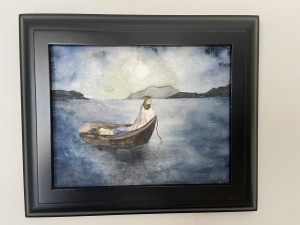
When we returned to South Africa in January 2024, I asked Emma Fogelman, the daughter of our colleagues, if she would be willing to create a painting of the boat picture I had in mind (I would, of course, pay her). She is a very gifted artist, and as I shared with her the meaning of this picture and how it tied into hopes and dreams and God’s sovereignty, she agreed to take the job. Emma proceeded to create the most beautiful watercolor painting of which I have named “Dream Big, Sweet Girl.” It hangs in my office.When we returned to South Africa in January 2024, I asked Emma Fogelman, the daughter of our colleagues, if she would be willing to create a painting of the boat picture I had in mind (I would, of course, pay her). She is a very gifted artist, and as I shared with her the meaning of this picture and how it tied into hopes and dreams and God’s sovereignty, she agreed to take the job. Emma proceeded to create the most beautiful watercolor painting of which I have named “Dream Big, Sweet Girl.” It hangs in my office.
I baked a chocolate cake today. It’s not a holiday. It’s nobody’s birthday. There is nothing of great significance to celebrate today. Sometimes we just need cake. Sometimes we need a little special something to remind us that while the mundane ordinariness of life may roll along, whipping us into step with to-do lists and obligations, there is still hope and still joy and still a little something cake-worthy.
What we can celebrate is that even in this moment, God is doing something. He doesn’t waste any part of our lives or our stories. Joseph bears witness to the powerful and redemptive work God does with our dreams. This is a cake with frosting moment. Our dreams are in His hands. And we can trust the path He has laid out for us.
So, dream big, my sweet friends.
